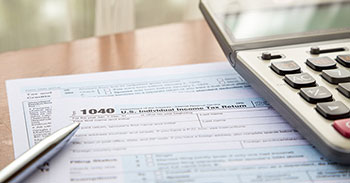
The government tightened bankruptcy laws in 2005, but in many cases, it’s still possible to reduce an income tax debt. You’ll definitely want to meet with an experienced bankruptcy attorney who can explain your options and any possible relief you might be able to achieve.
If you’re already being audited, a bankruptcy proceeding won’t stop your audit. It will, however, stop any collection action while the bankruptcy is pending.
If you didn’t file a tax return (or if you didn’t file several), you’re not allowed to discharge any of the debt. Before you file for bankruptcy, your attorney must prove that you filed your four most recent tax returns.
You’ll also have to meet all of the following 5 criteria for your income tax debt to be eligible for discharge:
1. The tax debt must be from a return that was due at least 3 years before you file for bankruptcy (including any extensions that were filed).
2. The debt has to be the result of a return that was filed with the IRS at least 2 years before you file for bankruptcy.
3. The tax must have been assessed at least 240 days prior to filing for bankruptcy. The tax debt can be the result of your tax return or additional tax resulting from an audit.
4. The tax debt owed cannot be from a fraudulent tax return.
5. You cannot be guilty of tax evasion.
As you can see, income tax debt and bankruptcy can be quite complicated – but that’s why we’re here. Call us at 214-760-7777 and schedule a free, no obligation consultation, and we’ll take the time to listen to your situation and walk you through your options. The sooner you call us, the sooner we can help get you the fresh start that you deserve.
